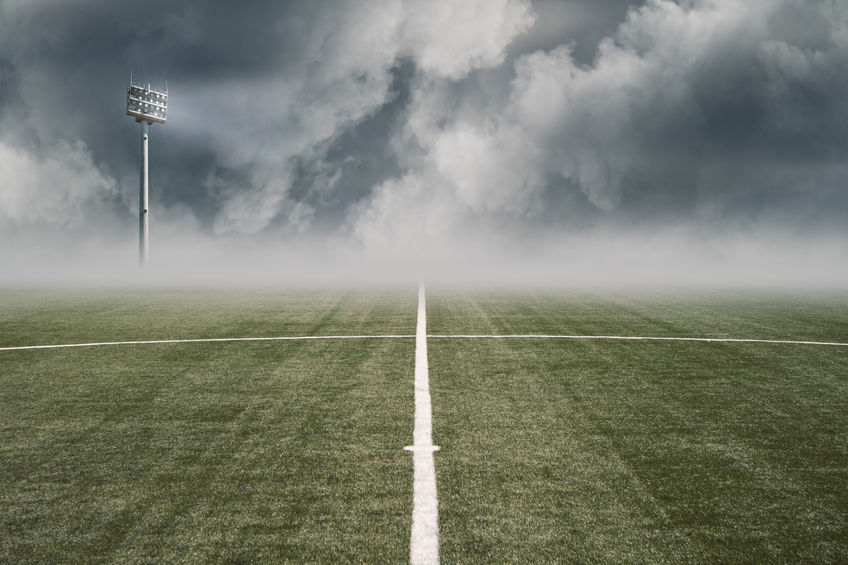Who May Be Liable If Lightning Strikes During an Athletic Event in Florida?
October 17, 2019 | Category: Personal Injury | ShareFlorida has more lightning strikes per square mile than any other state, making it the leading state for lightning deaths. Between 2009 and 2018, nine people died in lightning strikes across the state.
The National Weather Service reported in 2014 that 26 people died in the United States because of lightning strikes, and 6 of the deaths occurred in Florida in open sports fields. Metal bleachers were prime targets for lightning strikes.
 According to NASA, lightning occurs when ice particles within a cloud interact with each other through collision, causing the particles to fracture and break apart. The intense heat of the lightning generates a sound called thunder that is transmitted through the air at the speed of sound. “When lightning strikes, a bright flash of light is generated. Light travels at a constant 186,000 miles/second, which means that we see the flash immediately as it happens.”
According to NASA, lightning occurs when ice particles within a cloud interact with each other through collision, causing the particles to fracture and break apart. The intense heat of the lightning generates a sound called thunder that is transmitted through the air at the speed of sound. “When lightning strikes, a bright flash of light is generated. Light travels at a constant 186,000 miles/second, which means that we see the flash immediately as it happens.”
Experts say that university risk managers need to recognize that lightning strikes during athletic activities may result in injuries to players, spectators and everyone in attendance. If the university is not prepared, it may face personal injury lawsuits against the university as well as its administrators, coaches and referees. When sporting events are televised, broadcast companies may also be held liable if a decision to play the game anyway is done for the sake of money and/or TV exposure.
According to Florida law, universities have a duty to warn, supervise and detect potential lightning strikes. Student athletes and spectators expect college coaches, administrators and referees to protect them when they are at athletic events.
Universities and colleges must also have an evacuation plan and provide a safe shelter after stopping a game. In August 2013, a Georgia Southern University football team moved toward a pavilion to wait out a storm. One player was standing near the edge when lightning struck a tree nearby. He was injured and taken to a medical facility where he was later released.
Southwest Florida parks and outdoor stadiums have lightning alert systems. In Lee County, the Earth Networks lightning alert system is in place in several parks.
- When lightning is detected within 10 miles, a horn and strobe light activate. All outdoor activities must stop, and you must seek shelter immediately.
- All-clear is indicated by three, 5-second blasts from the horn, and the strobe light will stop.
- You can download the weatherapp by Earth Networks for more detailed weather information.
“If you or a loved one is injured by lightning at a public event, please contact Spivey Law Firm, Personal Injury Attorneys, P.A. We have the expertise to assist you, and there are no costs or attorney fees unless we make a monetary recovery for you,” said Fort Myers Personal Injury Lawyer Randall Spivey.
Fort Myers Personal Injury Lawyer Randall L. Spivey is a Board Certified Trial Attorney – the highest recognition for competence bestowed by the Florida Bar and a distinction earned by just one (1%) percent of Florida attorneys. He has handled over 2,000 personal injury and wrongful death cases throughout Florida. For a free and confidential consultation to discuss your legal rights, contact the Spivey Law Firm, Personal Injury Attorneys, P.A., in Lee County at 239.337.7483 or toll free at 1.888.477.4839, or by email to Randall@SpiveyLaw.com. Visit SpiveyLaw.com for more information. You can contact Spivey Law Firm, Personal Injury Attorneys, P.A.in Charlotte County at 941.764.7748 and in Collier County 239.793.7748.

